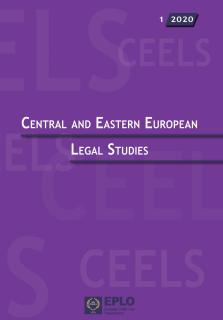
Mokestinė prievolės vykdymo būdai
Vilniaus Universiteto Teisės fakulteto Viešosios teisės katedros profesorius,
Viešųjų finansų ir mokesčių teisės mokslo centro vadovas, socialinių mokslų daktaras (Lietuvos Respublika)
Taxes being a basic instrument of fiscal policy of the State and an essential source of public income, detailed regulation of their collection is required. Therefore, the Taxes Administration Act not only legitimates the category of tax obligation, but regulates in detail the process of its discharge by tax-payers (the procedures related to the accounting, declaration and payment of taxes). It is obvious in this case that the Act gives priority to the free-will means of discharge of the tax-payers’ duties. The analysis of the issue is based on the review of legal regulations of the Lithuanian tax law in force and on the study of general principles of civil obligatory law. Based on the provided analysis the author examines and defines tax obligation as the specific legal relation between tax-payer (debtor) and the State (creditor) in which both of them have not only duties but also rights. Such relation arises from tax acts, adopted by the Parliament. Therefore, tax obligation cannot be an object of agreement between the State and the actual tax-payer. Particular attention in the article is given to the analysis of free-will means of discharge of the tax-payers’ duties, such as: payment of the taxes (including tax overpayment); succession on tax debt; respite of tax payment, etc.
Mokesčiai yra esminis valstybės fiskalinės politikos instrumentas ir pagrindinis viešųjų pajamų šaltinis, todėl valstybės skiria ypatingą dėmesį jų surinkimo reguliavimui. Mokesčių administravimo įstatymas todėl ne tik įtvirtina pačios mokestinės prievolės kategoriją, bet ir skiria ypatingą dėmesį šios prievolės įgyvendinimo reguliavimui (mokesčių apskaičiavimo, deklaeravimo, mokėjimo procedūrų principinių nuostatų nustatymui). Akivaizdu, kad įstatymų leidėjas šiuo atveju pirmenybę teikia savanoriškam mokestinės prievolės vykdymui. Straipsnyje atliktas tyrimas paremtas tiek galiojančių mokesčių teisės aktų analize, tiek bendrųjų prievolinės teisės nuostatų vertinimu. Straipsnyje mokewstinė prievolė vertinamak kaip ypatingas teisinis santykis, kylantis tar mokesčių mokėtojo (skolininko) ir valstybės (kreditoriaus), susijęs su viešųjų pajamų surinkimu apskritai, dėl ko mokestinė prievolė negali būti susitarimo tarp valstybės bei paskiro mokesčių mokėtojo dalyku. Atskiras dėmesys straipsnyje skirtas atskirų mokestinės prievolės vykdymo būdų, įteisintų Mokesčių administravimo įstatyme, analizei.



















